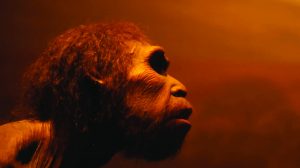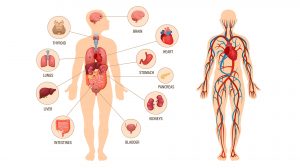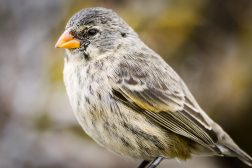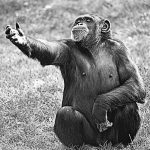Definition
noun, plural: primates
Any of a group of placental mammals, particularly the prosimians and the simians
Supplement
Primates belong to class Mammalia of phylum Chordata. They include apes, monkeys, and humans. In taxonomy, the order Primates is the highest order of mammals. They are placental mammals with good eyesight and flexible hands and feet.
The order Primates has two major groups: (1) prosimians and (2) simians (anthropoids). Prosimians are characterized by their rather primitive features compared with those of simians. They include the lemurs, lorisoids, and tarsiers. Simians include hominins, apes, and monkeys. The simian line and the tarsier line diverged during the Cenozoic era, i.e. about 60 million years ago.
A more recent classification of primates shows that the primates may be grouped into wet-nosed primates and dry-nosed primates. The wet-nosed primates make up the suborder Strepsirrhini whereas the dry-nosed primates belong to the suborder Haplorhini. The suborder Strepsirrhini consists of non-tarsier prosimians. The suborder Haplorhini includes the tarsiers and the simians. The simians may be subdivided into two major groups: catarrhines (Old World monkeys and apes) and platyrrhines (New World monkeys).
Scientific classification:
- Kingdom: Animalia
- Phylum: Chordata
- Class: Mammalia
- Order: Primates 1758
See also:
Related term(s):
- Primate diseases
- Lentiviruses primate








